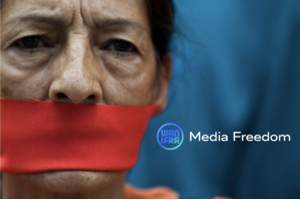Tech
Chinese Spies Accused of Using Huawei in Secret Australia Telecom Hack
Published
3 years agoon
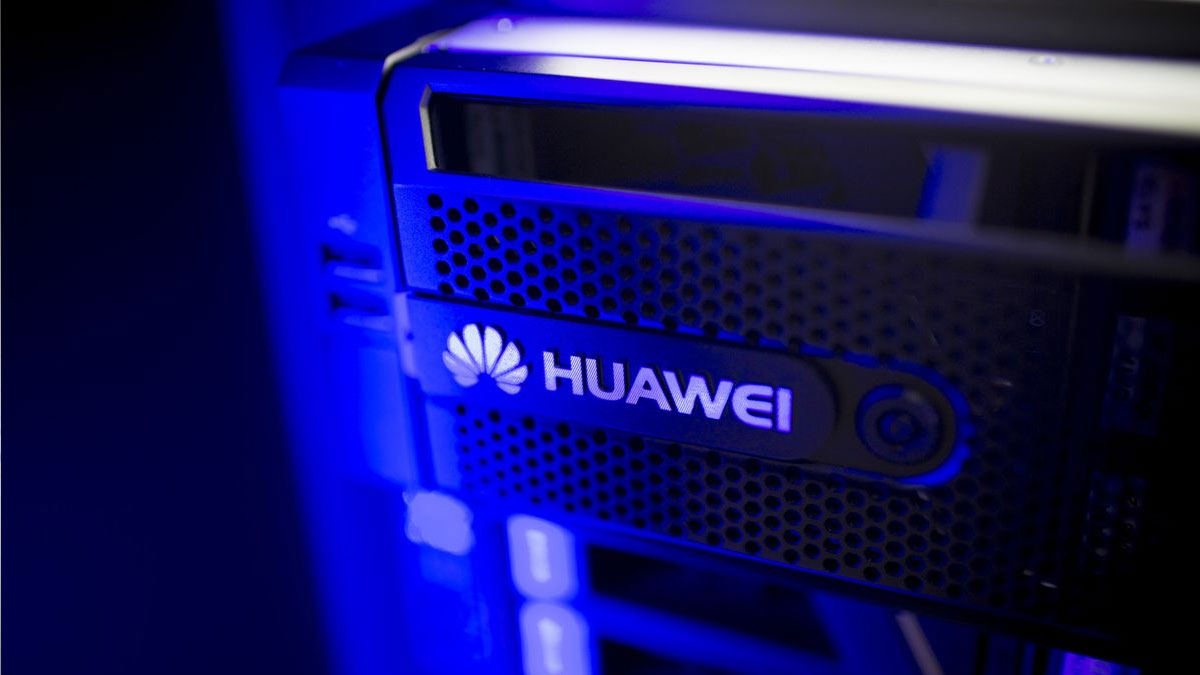
The U.S. government has warned for years that products from China’s Huawei Technologies Co., the world’s biggest maker of telecommunications equipment, pose a national security risk for any countries that use them. As Washington has waged a global campaign to block the company from supplying state-of-the-art 5G wireless networks, Huawei and its supporters have dismissed the claims as lacking evidence.
Now a Bloomberg News investigation has found a key piece of evidence underpinning the U.S. efforts — a previously unreported breach that occurred halfway around the world nearly a decade ago.
In 2012, Australian intelligence officials informed their U.S. counterparts that they had detected a sophisticated intrusion into the country’s telecommunications systems. It began, they said, with a software update from Huawei that was loaded with malicious code.
The breach and subsequent intelligence sharing was confirmed by nearly two dozen former national security officials who received briefings about the matter from Australian and U.S. agencies from 2012 to 2019. The incident substantiated suspicions in both countries that China used Huawei equipment as a conduit for espionage, and it has remained a core part of a case they’ve built against the Chinese company, even as the breach’s existence has never been made public, the former officials said.https://imasdk.googleapis.com/js/core/bridge3.493.0_en.html#goog_1149147929Chinese Spies Accused of Using Huawei in Secret Telecom HackWATCH: Chinese Spies Accused of Using Huawei in Secret Telecom Hack
The episode helps clarify previously opaque security concerns driving a battle over who will build 5G networks, which promise to bring faster internet connectivity to billions of people around the globe. Shenzhen-based Huawei dominates the more than $90 billion global telecommunications equipment market, where it competes against Sweden’s Ericsson AB and Finland’s Nokia Oyj. But the U.S., Australia, Sweden and the U.K. have all banned Huawei from their 5G networks, and about 60 countries signed on to a U.S. Department of State program where they’ve committed to avoiding Chinese equipment for their telecommunications systems. Such efforts, which have also included U.S. sanctions against the Chinese company, have slowed Huawei’s growth and heightened tensions with China.Sponsored ContentThe Chinese Energy Company Taking the Lead on DecarbonizationENN Energy
The briefings described to Bloomberg contained varying degrees of detail, and the former officials who received them had different levels of knowledge of — and willingness to discuss — specifics. Seven of them agreed to provide detailed accounts of the evidence uncovered by Australian authorities and included in their briefings.
At the core of the case, those officials said, was a software update from Huawei that was installed on the network of a major Australian telecommunications company. The update appeared legitimate, but it contained malicious code that worked much like a digital wiretap, reprogramming the infected equipment to record all the communications passing through it before sending the data to China, they said. After a few days, that code deleted itself, the result of a clever self-destruct mechanism embedded in the update, they said. Ultimately, Australia’s intelligence agencies determined that China’s spy services were behind the breach, having infiltrated the ranks of Huawei technicians who helped maintain the equipment and pushed the update to the telecom’s systems.
Guided by Australia’s tip, American intelligence agencies that year confirmed a similar attack from China using Huawei equipment located in the U.S., six of the former officials said, declining to provide further detail.
Mike Rogers, a former Republican congressman from Michigan who was chair of the U.S. House of Representatives intelligence committee from 2011 to 2015, declined to discuss the incidents. But he confirmed that national bans against Huawei have been driven in part by evidence, presented in private to world leaders, that China has manipulated the company’s products through tampered software updates, also known as patches.
“All their intelligence services have pored over the same material,” said Rogers, a former FBI agent who is now a national security commentator on CNN. “This whole body of work has come to the same conclusion: It’s all about administrative access, and the administrative patches that come out of Beijing are not to be trusted.”
Many people familiar with Australia’s intelligence told Bloomberg that they were bound by confidentiality agreements and couldn’t discuss it on the record. But Michèle Flournoy, former under secretary of defense for policy at the Department of Defense under President Barack Obama, said she wasn’t constrained from doing so.
Flournoy, who is co-founder and managing partner of WestExec Advisors LLC, a national security consulting firm closely aligned with the Obama and Biden administrations, confirmed the intrusion and the tampered software update from Huawei. She said she learned about the episode after leaving government in early 2012, emphasizing that the information was shared in unclassified forums.
“The Australians from the get-go have been courageous in sharing the information they had, not only with the intelligence channels but more broadly in government channels,” Flournoy said. “Australia experienced it, but it was also a vicarious wake-up call for Australia’s allies.”
The Australian Signals Directorate, that country’s leading cybersecurity agency, declined to answer specific questions about the incident. “Whenever ASD discovers a cyber incident affecting an entity, it engages the relevant entity to provide advice and assistance,” the agency said in a statement. “ASD’s assistance is confidential — it is a matter for relevant entities to comment publicly on any cybersecurity incident.”
You may like
-


Huawei OceanStor Pacific Ranks highest in Gartner Critical Capabilities Report
-


Semiconductor association flags Huawei home chip push
-
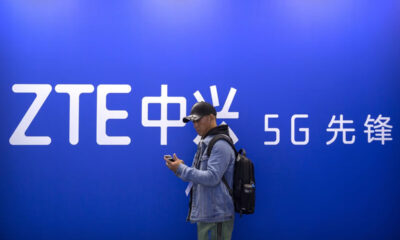

ZTE hits back at European Commission claims
-
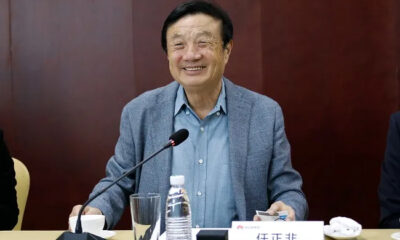

Huawei founder outlines local component push
-


U.S. charges two Chinese nationals with obstructing Huawei case, source says
-


Huawei partners with GOLDEN HARVEST to build a cloud-based, fully connected smart Bangladesh
Tech
Web Summit to host hundreds of curated community meetups in Lisbon this November
Published
1 month agoon
September 13, 2024
Web Summit has announced today that it will host hundreds of curated community meetups in Lisbon this November, powered by its proprietary software, Summit Engine.
This initiative is part of Web Summit’s renewed mission to foster meaningful connections and communities. By bringing people with similar backgrounds, interests and objectives together in community meetups, Web Summit hopes to make the event feel smaller and more intimate for attendees, as it continues to grow and scale across the world. Hundreds of these community meetups will take place alongside signature challenging discussions on how technology is shaping the world.
So far, this year’s top speakers include Yinon C. (Yinon Costica), co-founder of cybersecurity powerhouse WIZ , which recently made waves by turning down a US$23 billion offer from Google; Julie De Moyer , LVMH ’s recently appointed chief data and AI officer; Lidiane Jones , CEO of popular dating app Bumble Inc. , which harnesses AI to improve matchmaking; Cristiano Anon, CEO of Qualcomm, the company working to create bigger, better, and more affordable AI chips; and Meredith Whittaker, president of encrypted messaging app Signal, which is fighting against government measures to scan citizen’s private messages.
Also taking to the stage will be Alibaba.com president Kuo Zhang ; Škoda Auto CMO Meredith Kelly; Amazon Web Services VP of AI Matt Wood ; Meta’s global head of consumer marketing, Eshan Ponnadurai; Manchester United CEO Omar Berrada, and much more. They will be joined, by world comms@websummit.com leaders and changemakers, including Germany’s Vice Chancellor, Robert Habeck; Portugal’s minister of youth and modernisation, Margarida Balseiro Lopes, and exiled Venezuelan opposition leader Leopoldo López.
Global tech companies, including IBM, Adobe, Intercom, Samsung Next, and Niantic Labs will exhibit on the floor alongside financial giants such as Visa and American Express. Other notable partners include Novo Nordisk, Bosch, EDP, and KPMG.
New for 2024: Hundreds of curated meetings
Of course, Web Summit isn’t just about the speakers – it’s about the connections. That’s why this November, our curated meetups, powered by Summit Engine, will bring together attendees with shared roles or interests in AI, fintech, crypto, food tech, sustainability, and more.
To do this, Web Summit’s data science team uses in-house software to group attendees who have common interests and backgrounds, helping uncover emerging communities. This technology was tested this year at Web Summit Rio in April, and at Collision in Toronto in June. From data scientists in Uruguay and food tech startup founders and investors to public sector AI innovators, Web Summit wants to make sure that the right people find each other at our events. Attendees can use the Web Summit app to easily connect and stay in touch with those they’ve met long after the event ends in November
“This is going to be our biggest but also our smallest event yet … we aim to host thousands of community meetups at the event and across Lisbon in November. We are evolving from being one large event to becoming a collection of a thousand deep, interconnected experiences,“ said Paddy Cosgrave .
“Over the last 15 years, the world has changed in many ways, and we’ve always been committed to adapting and re-evaluating our mission and goals to meet evolving challenges, ideas, and global circumstances. We’re currently in an especially charged moment in time,” Paddy continued.
“We are bigger than ever, but our mission remains the same – connecting the people, companies and ideas that change the word. Ultimately, the best event experience is when you walk away with a stronger network than you came with,” added SVP of product Brian Flanagan .
Just announced
The full list of speakers at Web Summit is being announced today:
● Lidiane Jones, CEO of Bumble
● Anastasis Germanidis , co-founder and CTO of Runway
● Meredith Kelly , CMO of Škoda Auto
● Sarah Myers West , co-executive chair of AI Now Institute
● Patrick Kluivert, former footballer with Barcelona and The Netherlands
● Paula Goldman , chief ethical and humane use officer at Salesforce
● Omar Berrada, CEO of Manchester United
● Hans Niemann , chess grandmaster
● Meredith Whittaker , president of Signal Messenger
● Munya Chawawa, actor and comedian
● Atul Bhardwaj j, chief digital and technical officer at the LEGO Group
● Smita Hashim , chief product officer at Zoom
● Alex Hirschi, founder of Supercar Blondie
New speakers are being added regularly on the Web Summit speaker page
About Web Summit:
Web Summit is a technology events company, bringing together a global community of founders, entrepreneurs, business leaders, and investors to connect and exchange ideas about the technology and trends shaping the world. Web Summit events – including Web Summit in Lisbon, Web Summit Rio in South America, Web Summit Qatar in the Middle East, and RISE in Asia – have gathered nearly one million people since Web Summit’s beginnings as a 150-person conference in Dublin in 2009. Its newest event, Web Summit Vancouver, will launch in May 2025.
Useful Links:
Web Summit website: https://websummit.com/
Web Summit Flickr: https://www.flickr.com/photos/websummit/albums/
Web Summit YouTube: https://www.youtube.com/channel/UCJtkHqH4Qof97TSx7BzE5IQ
Tech
Countries strengthening cybersecurity efforts, but increased action still required
Published
1 month agoon
September 13, 2024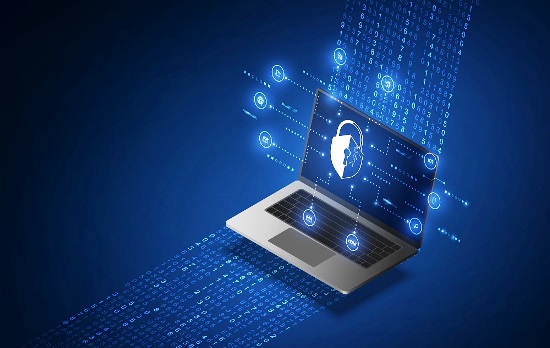
UN cybersecurity report assesses global progress in providing a safe and secure digital future for all.
Countries around the globe are improving cybersecurity efforts, but stronger actions are needed to meet evolving cyberthreats, according to the Global Cybersecurity Index 2024, released today by the International Telecommunication Union (ITU).
On average, countries have taken more cybersecurity-related actions and improved their cybersecurity commitments since the last index was released in 2021.
Worrisome threats highlighted in the report include ransomware attacks targeting government services and other sectors, cyber breaches affecting core industries, costly system outages, and breaches of privacy for individuals and organizations.
“Building trust in the digital world is paramount,” said Doreen Bogdan-Martin, ITU Secretary-General. “The progress seen in the Global Cybersecurity Index is a sign that we must continue to focus efforts to ensure that everyone, everywhere can safely and securely manage cyberthreats in today’s increasingly complex digital landscape.”
A new assessment with sharper focus
ITU’s Global Cybersecurity Index 2024 (GCI 2024) assesses national efforts across five pillars, representing country-level cybersecurity commitments: legal, technical, organizational, capacity development, and cooperation.
GCI 2024 also uses a new five-tier analysis, a shift that allows a greater focus on each country’s advances with cybersecurity commitments and resulting impacts.
The report places 46 countries in Tier 1, the highest of the five tiers, reserved for “role modelling” countries that demonstrate a strong commitment in all five cybersecurity pillars.
Most countries are either “establishing” (Tier 3) or “evolving” (Tier 4) in terms of cybersecurity. The 105 countries in these tiers have largely expanded digital services and connectivity but still need to integrate cybersecurity measures.
A “cybercapacity gap” – characterized by limitations in skills, staffing, equipment and funding – was evident in many countries and across all regional groups.
“The Global Cybersecurity Index 2024 shows significant improvements by countries that are implementing essential legal measures, plans, capacity building initiatives, and cooperation frameworks especially in strengthening incident response capabilities,” said Cosmas Luckyson Zavazava, Director of ITU’s Telecommunication Development Bureau. “ITU’s cybersecurity projects and programmes are supporting those national efforts to more effectively manage cyberthreats, and I hope that the progress demonstrated by this latest index encourages countries to do more in developing secure and trustworthy digital systems and networks.”
Regional and national assessments
According to GCI 2024, the Africa region has advanced the most on cybersecurity since 2021. All world regions show improvement since the last report.
The world’s least developed countries (LDCs) have also started making gains, though they still need support to advance further and faster. GCI 2024 data shows that the average LDC has now reached the same level of cybersecurity status that many of the non-LDC developing countries had in 2021.
Land-locked developing countries (LLDCs) and small island developing states (SIDS) continue to face resource and capacity constraints on cybersecurity efforts.
GCI 2024 includes individual assessments and provides a clear status report and a roadmap of activities to make further progress on cybersecurity.
Other key findings of the GCI
Legal measures are the strongest cybersecurity pillar for most countries: 177 countries have at least one regulation on either personal data protection, privacy protection, or breach notification in force or in progress.
Computer Incident Response Teams (CIRTs) are crucial for national cybersecurity: 139 countries have active CIRTs, with various levels of sophistication, up from 109 in the 2021 index.
National Cybersecurity Strategies (NCS) are becoming more prevalent: 132 countries have a National Cybersecurity Strategy as of 2024, up from 107 in the 2021 index.
Cyber awareness campaigns are widespread: 152 countries have conducted cyber awareness initiatives targeting the general population, with some also targeting specific demographics such as vulnerable and underrepresented populations, to create a culture of cybersecurity and address potential risks.
Incentives for the cybersecurity industry continue evolving: Governments are promoting the cybersecurity industry through incentives, grants, and scholarships, aiming to enhance cybersecurity skills and foster research in the field, with 127 countries reporting some form of cybersecurity-related research and development.
Many countries cooperate on cybersecurity through existing treaties: 92% of countries (166) reported being part of an international treaty or comparable cooperation mechanism for cybersecurity capacity development, or information sharing, or both. Putting cybersecurity agreements and frameworks into practical operation remains challenging.
Capacity development and technical pillars are relatively weak in most countries. 123 countries reported having trainings for cybersecurity professionals, up from 105 in 2021. In addition, 110 countries had frameworks to implement nationally or internationally recognized cybersecurity standards, up from 103 in 2021.
Capacity development initiatives need to be reinforced: 153 countries have integrated cybersecurity into national curricula at some level, but cybersecurity trainings and awareness-raising varies widely across regions. Developing a strong domestic cybersecurity industry is essential to sustain progress.
Countries need to focus on protecting children online: 164 countries have legal measures in place for child online protection; only 94 countries reported associated strategies and initiatives, indicating a gap in implementation.
Cybersecurity assessments leading to action
As cybersecurity continues to evolve, GCI offers a clear picture of where countries are and a roadmap of activities to make progress. The report offers 11 key recommendations, from enhancing critical infrastructure to providing cybersecurity training.
GCI 2024 suggests that countries can prioritize high-impact activities, including:
- implementing legal measures applicable across all sectors;
- developing and regularly updating a comprehensive national cybersecurity strategy and a practical, concrete action plan;
- enhancing incident-response capabilities;
- delivery of capacity building and training to cybersecurity professionals, youth and vulnerable groups to strengthen cybersecurity skills;
- fostering domestic and international cooperation and collaboration on information-sharing, training opportunities, and capacity development.
ITU, the UN Agency for Digital Technologies, aims to connect the estimated 2.6 billion people who currently remain offline. Most of the globe’s offline population live in developing countries, with the widest gaps in the least developed countries.
ITU established the Global Cybersecurity Index in 2015. The report series identifies areas for improvement and encourages countries to act on strengthening cybersecurity.
Tech
Best Computer Hub Ltd. Set to Revolutionize Bangladesh’s E-Commerce Market
Published
1 month agoon
September 11, 2024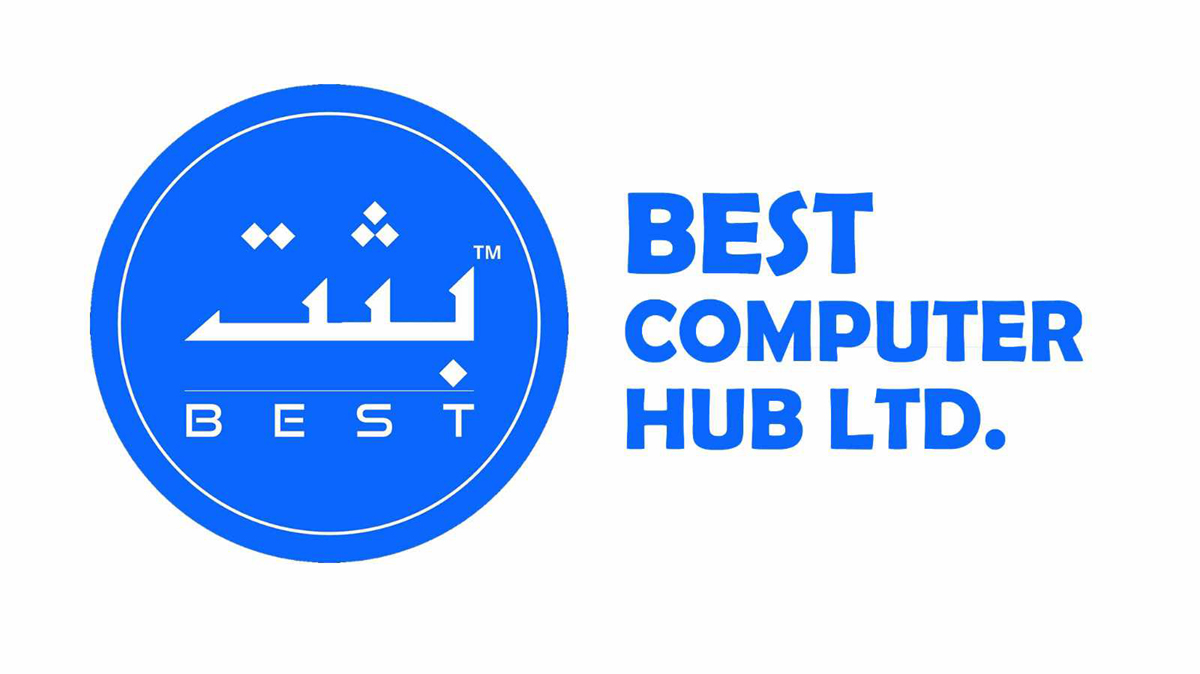
Best Computer Hub Ltd. (BCHL) is poised to make a significant impact on the e-commerce landscape in Bangladesh with the official launch of its online platform on September 1, 2024. Specializing in computer accessories, gadgets, and IT solutions, BCHL aims to become the go-to hub for both retail and wholesale customers across the country.
Operating from GM Plaza, Level-1, 93 New Elephant Road, Dhaka-1205, BCHL will offer a diverse range of products through its website bestcomputerhub.com. The company’s product categories include Brand Laptops & PCs, Gaming Components, Networking Components, Smart Home Appliances, and more. Each product is rigorously checked to ensure top quality, reflecting BCHL’s commitment to customer satisfaction.
BCHL collaborates with top brands like MSI, HP, Antec, Razer, and Noctua, ensuring customers have access to the latest tech at competitive prices. In addition to serving individual consumers, BCHL also partners with corporate clients, including banks, hospitals, and telecom companies, providing comprehensive tech support and IT hardware.
With a focus on quality products and exceptional customer service, Best Computer Hub Ltd. is set to become a leader in Bangladesh’s IT and electronics industry. For more information, contact support@bestcomputerhub.com.

Smart Technologies syndicate sips millions of dollars from IDRA automation

Web Summit to host hundreds of curated community meetups in Lisbon this November

Countries strengthening cybersecurity efforts, but increased action still required










